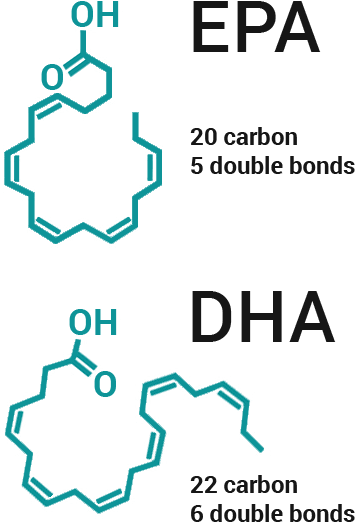by Liza Olkhova
Mediterranean diet, characterised by consumption of fish, olive oil, greens and grains, has been associated with healthier lifestyles and prolonged lifespan. Japanese diet has also been associated with longer lifespan, and the intake of fish and fish oils is prevalent in the Asian diet. Western diets, however, are largely based on meat products and a widespread use of butter, both of which are rich in saturated fats and cholesterol, which have been established to contribute to atherosclerosis. Atherosclerosis is a term for a pathological process that leads to a build-up of fat and inflammatory cells, eventually forming an atherosclerotic plaque within the walls of coronary arteries that supply the heart itself with oxygenated blood. If untreated, atherosclerotic plaques may cause heart attacks if the arteries’ lumen becomes too narrow to adequately supply the cardiomyocytes with oxygen and glucose.
What is the difference in oils and fats and how do we know which one is more likely to be beneficial? There is some evidence suggesting that increased intake of saturated fatty acids that only have single C-C bonds between the carbon atoms in their skeleton is not beneficial and might be damaging to cardiovascular health, whereas unsaturated fatty acids are considered “healthier” for the heart. Unsaturated means there is at least one or more double C=C bonds present within the fatty acid structure, called mono- and polyunsaturated fatty acids, respectively. But in biology nothing is ever quite so simple. A lot of fish oil supplements trials concluded that fish oil had no effect on protecting against cardiovascular diseases and scientists were trying to untangle whether some fatty acids and not the others could be beneficial.

An observational study conducted in Denmark and published this January in journal Stroke has ruled out that higher amounts of EPA are more beneficial than for example DHA in reduction of stroke associated with lower blood supply to the brain, called ischaemic stroke. Both of those fatty acids belong to the class of polyunsaturated fatty acids and are more commonly known by the name of omega-3s.
A clinical trial, REDUCE-IT, has compared EPA with placebo to identify if EPA may indeed reduce the rates of stroke in subjects. Indeed, they have found that the rate of strokes in the group of subjects that were taking high levels of purified EPA were decreased by almost a third compared to the control group taking placebo.
Therefore, it is important to address over-the-counter fish oil supplements and the proportions of different fatty acids that are within those oils and whether the level they are present at would cause an effect on reducing the risk of myocardial infarction and stroke. The balance and proportion of EPA to DHA may also determine this.
There are many other extremely important factors that determine the risk of cardiovascular diseases and must not be forgotten, including genetic predisposition, alcohol intake, smoking, unhealthy sleep patterns, age, lack of physical exercise, as well as diet. In the era of global obesity ‘pandemic’ we need to pay closer attention to our diet and make sure it is varied and balanced.